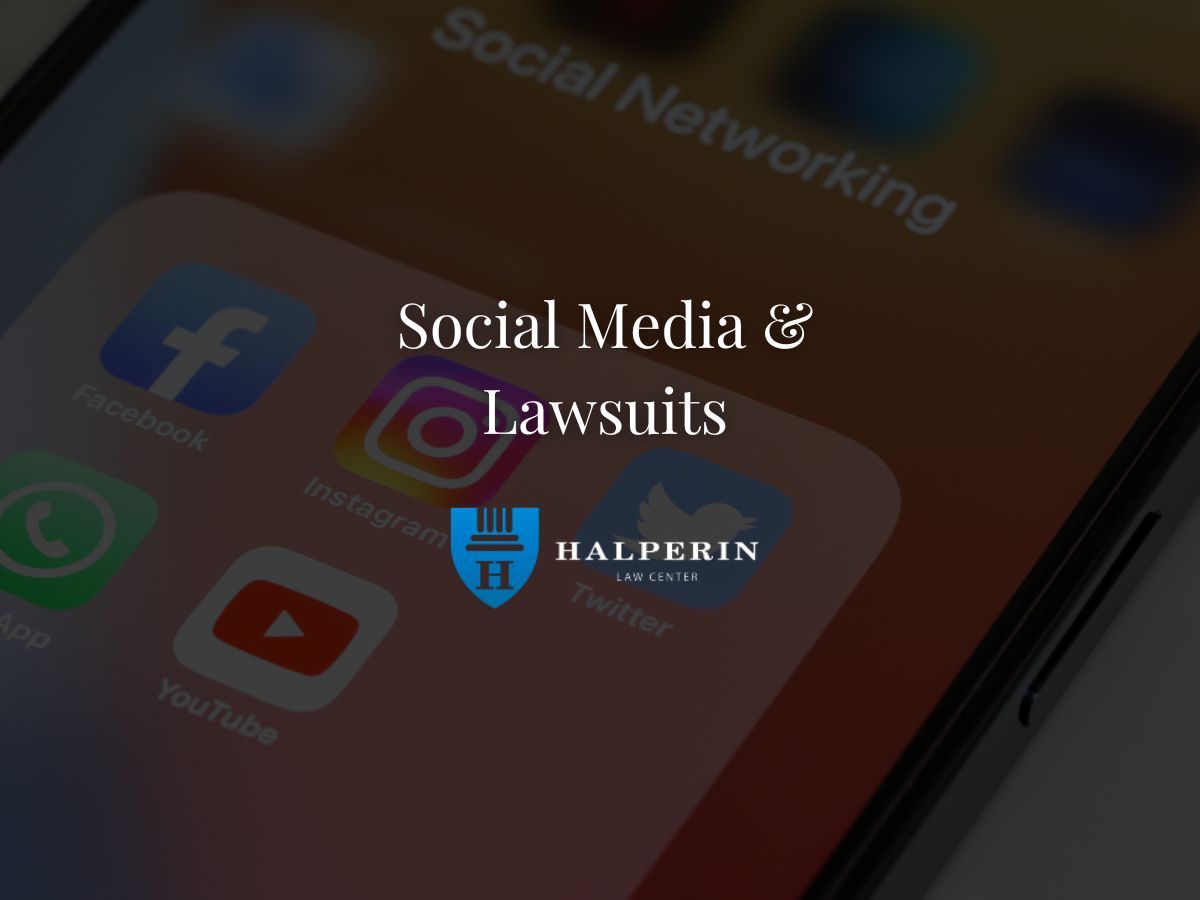Social media has become an integral part of our daily lives. People use platforms like Facebook, Twitter, and Instagram to connect with friends, share their opinions, and document their lives. However, when it comes to legal proceedings, social media can pose significant hazards and risks. In this blog, we will discuss the risks of using social media during pending litigation and how to protect yourself from potential harm.
First and foremost, social media is a place where people often let their guard down and reveal more about themselves than they realize. Posts, comments, photos, and videos can all be used as evidence in court, and what you say or share online can have serious consequences for your legal case. For example, if you are involved in a personal injury lawsuit, a seemingly harmless post on Facebook about how you are feeling or what you are doing can be twisted and used against you in court to argue that you are not as injured as you claim to be.
Another risk of social media during lawsuits is the potential for the destruction of evidence. Social media platforms like Facebook and Twitter have a tendency to change or delete posts over time, and this can impact the integrity of the evidence in your case. Additionally, if you are involved in a lawsuit, the opposing party may try to request access to your social media accounts or other online profiles in order to gather evidence against you. If this happens, it is important to understand your rights and what steps you can take to protect your privacy and the evidence in your case.
While there is some protection of social media information provided by the Federal Stored Communications Act (“SCA”) 18 U.S.C. § 2701, et. seq., the protection is extremely limited as the SCA only protects private information. “Simply entering a name into Google, Facebook, MySpace, or any other social networking website…does not constitute a violation of anyone’s privacy rights. The public information posted on the internet is not private information. It is posted on a public medium, and available to anyone with access to the internet.” Womack v. Yeoman, 2011 WL 9330606 (Richmond Cir. Ct. 2011)(Trial Order).
An offense under the Stored Communications Act is committed when someone “(1) intentionally accesses without authorization a facility through which an electronic communication service is provided;” or “(2) intentionally exceeds an authorization to access that facility; and thereby obtains…[an] electronic communication while it is in electronic storage in such system.” 18 U.S.C. § 2701(a)(1)-(2). However, it does not apply to an “electronic communication [that] is readily accessible to the general public.” 18 U.S.C. § 2511(2)(g).
When your settings are public, anyone can access your profile without violating the SCA. Even if you have your own social media site set to private, any information that you post that is republished by someone with no privacy settings is also fair game. If the information is truly private, then the SCA prohibits a social media company from disclosing that information, even if subpoenaed. You can make your profile private, but remember, if your friends’ or family members’ profiles are public, they can be searched for information about you and your activities.
Even if all of your social media information is “private,” if you are involved in a lawsuit, the other side can force you to produce all of your social media information through the discovery process by use of interrogatories (written questions), by requests for production of documents, or by subpoena. This is done through Virginia Supreme Court Rule 4:9 for parties and Rule 4:9A for non-parties. Pursuant to Virginia Supreme Court Rule 4:1(b)(1), the information requested need only be relevant and lead to the discovery of admissible evidence, which is an extremely broad standard. While not everything that you post on a social media site will be relevant to your personal injury case, if you do not want the other side to have access to this information, do not post it. You cannot hide it from the other side. If you are already involved in a personal injury action or have been injured through the fault of someone else, and have posted something on a social media site, do not destroy it or remove the post. This may be deemed destruction of evidence and can lead to a spoliation jury instruction if your case goes to court, which essentially allows the jury to infer that whatever you removed shows what the other side wants it to – which is generally going to be something that they will try to use against you. So remember, if you are injured through the fault of someone else, contact an experienced personal injury attorney familiar with both state and Federal laws, and remember, be careful what you post on social media.
Social media can be a significant hazard during legal proceedings, and it is essential to be aware of the potential risks and to take steps to protect yourself. This includes being mindful of what you say or share on social media, being aware of the potential for destruction of evidence, and avoiding discussions about your case with anyone, including the opposing party. If you are involved in a lawsuit, it is best to consult with an attorney who can advise you on how to navigate the legal process and protect your rights. Reach out today to schedule your consultation with an attorney at the Halperin Law Center.




